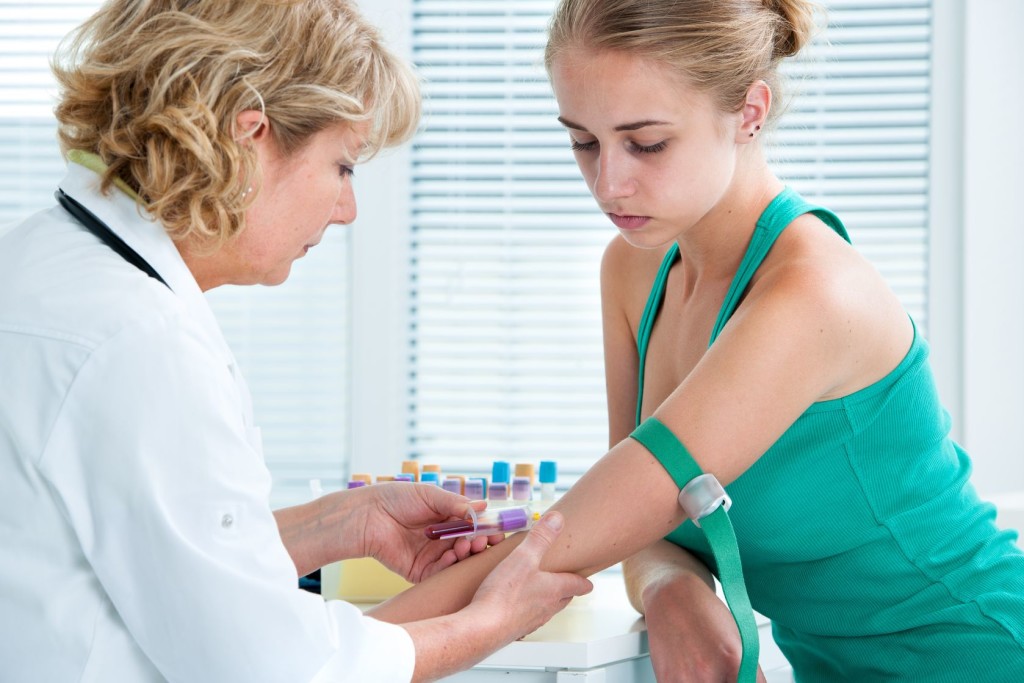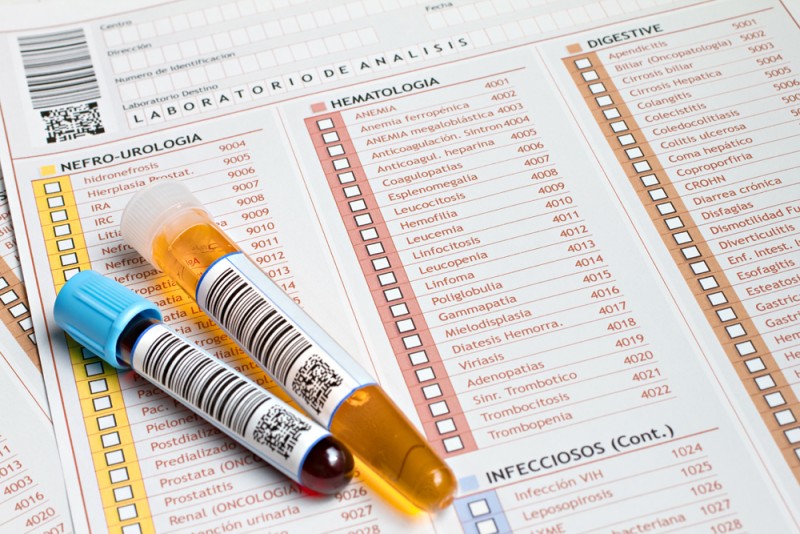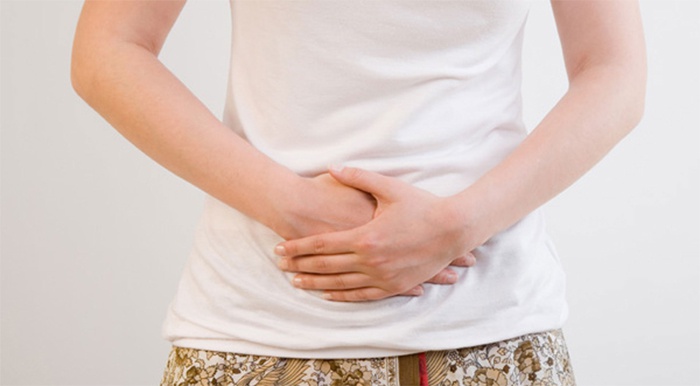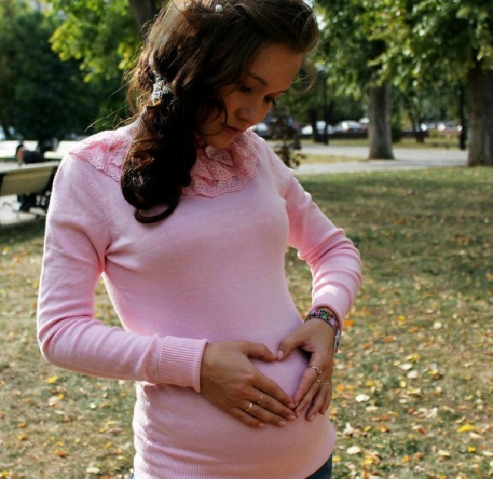Normal condition during pregnancy in the first trimester. First trimester of pregnancy
According to doctors, how the expectant mother behaves in the first trimester of pregnancy, 50% depends on health and proper development child. It is the mother who can prevent the appearance of many problems. This period of her life is associated with some difficulties and prohibitions. What to look for Special attention? What weeks of the first trimester are considered the most dangerous?
Period Features
The first trimester of pregnancy is the beginning of the beginning. It consists of 12 weeks. During this period, many organs and systems of the fetus are laid. What does this process look like?
- Cells are in the stage of active division. The fertilized egg moves towards the uterus. It is important that there are no adhesions in its path, otherwise there is a danger ectopic pregnancy.
- The egg is firmly fixed in the uterus. If there are any inflammatory processes, it can be located near the neck. This is very dangerous, as it can provoke placenta previa. When other unfavorable conditions for the development of the embryo appear, the maternal organism rejects and removes it from the body. This phenomenon is called self-abortion.
- Around the 20th day of pregnancy, organs are laid in the embryo. The rudiments of nerves, heart and reproductive system appear. From the fifth week you can already hear his heartbeat. On average, its frequency reaches 110-130 beats per minute.
- Then the brain appears and actively develops. Because of this, the head grows. At this time, its size is approximately 30% of the entire body.
- The next step is the formation of the legs. They become more visible.
- From week 10, the embryo is called a fetus. At this time, he has fingers and toes.
- Up to 11 weeks, the fetus is still actively growing and developing.
First signs
The pregnancy countdown starts from the first day of the last menstruation. For this reason, a woman feels the first symptoms around the middle of the trimester:

If you do not find the problem in time and do not start treatment, you can provoke a miscarriage.
Required tests
The first trimester of pregnancy is the period when you should take a series mandatory tests. Which ones and how much, the attending physician decides. Usually this:
- general blood analysis;
- blood test for syphilis and HIV;
- determination of blood group and Rh factor;
- blood sugar test;
- Analysis of urine;
- vaginal swab.

If any results seem unsatisfactory to the doctor, he may prescribe additional examination. In addition to the examinations described above, women will need to visit an ophthalmologist, dentist, ENT and therapist. Do not forget about the first screening.
Screening, or screening ultrasound, is the most important analysis for a period of 10 to 14 weeks. During this examination, the obstetrician-gynecologist pays attention to two parameters: hCG level and PAPP-A or plasma protein-A.
The level of hCG begins to rise after the embryo is fixed in the uterus. If it is too high or, conversely, underestimated, we can talk about pathologies.
If the hCG level is low, this indicates:
- ectopic or missed pregnancy;
- developmental delay;
- the risk of abortion;
- placental insufficiency.

An elevated hCG level indicates such problems:
- pregnancy with two or more fetuses;
- developmental disorders at the chromosome level;
- gestosis.
Plasma protein begins to be produced from the moment of conception. Special meaning doctors give it at the end of the first trimester. Reduced level of this substance indicates the possibility of having a child with chromosomal disorders. next period for screening - 5 months of pregnancy.
Toxicosis
You need to know that the beginning of pregnancy is almost always associated with some discomfort. One of them is toxicity. Sometimes he torments a woman throughout the day, and sometimes it happens only in the morning. Its appearance is due to the fact that work changes a lot in the first trimester. nervous system. If a pregnant woman has previously suffered from diseases of the digestive tract, the risk of toxicosis is greatly increased. However, after 12 weeks it usually goes away.

How to escape from toxicosis? There is no universal way. You can improve your condition by following a few simple tips.
- Devote more time to rest and sleep.
- walk on fresh air not less than 2-3 hours.
- Ventilate an apartment or house.
- Eat less, but more often.
- In the morning, before getting out of bed, eat a cracker or an apple. After that, lie down for 5-10 minutes and only then get up.
- Doctors recommend eating for breakfast protein food such as eggs or dairy products. You can add whole grain cereals and some fruits to your morning diet.
- You shouldn't overeat. A large number of food causes nausea.
- You need to protect yourself from annoying odors.
- It is recommended to carefully listen to your body in terms of food.
- To get rid of nausea, you can drink decoctions medicinal herbs. However, before doing this, you should consult with your doctor.

There are three degrees of toxicosis. They differ in how many times a day vomiting occurs:
- Light. Vomiting no more than 5 times a day.
- Moderate. Up to 10 times.
- Strong. About 20 times.
In the last degree, food is practically not retained in the stomach. This condition requires hospitalization and medical treatment.
Sadly, toxicosis is not the only problem that pregnant women may experience.
constipation
This problem affects almost 70% of all pregnant women. It is due to the fact that the intestines are no longer working so fast.

Help improve the situation balanced diet. The diet must contain those foods that are high in fiber. These are fruits, vegetables and bakery products from wholemeal flour.
An excellent remedy for constipation is prunes. From it you can prepare a medicinal infusion. For him, you need to take 100 g of prunes and 400 ml of just boiled water. You can add sugar or honey. The broth must be allowed to brew for 10 hours. Drink half a glass (125 ml) before each meal. Eat prunes.
An alternative to decoction - a glass cold water, drunk immediately after waking up. You can add honey to the water.
Emotions
The beginning of pregnancy is also associated with emotional problems. A woman can be very irritated, without reason to laugh or be sad. She constantly feels tired. Sometimes there is no desire to have sex.

Here are some tips to help you manage your emotions:
- you need to rest more during the day;
- it is necessary to receive only positive emotions;
- walk more;
- you can take a shower - it will help to relax;
- mint tea will have a positive effect on the nervous system.
critical moments
There are very dangerous periods in the first trimester of pregnancy. How many are there? Two is the first three weeks and a period of 8 to 12 weeks. For a period of 2-3 weeks, the fertilized egg is fixed in the uterine cavity.
There are factors that can prevent this and even cause spontaneous abortion:
- abnormal structure of the uterus (the presence of several partitions, the so-called bicornuate uterus);
- myoma;
- a history of abortions that injured the mucous surface;
- scarring;
- stress and increased physical activity.

Second dangerous period– 8-12 weeks. What do you need to know about it? At this time, hormonal changes take place in the body of the expectant mother. There is a risk of pathological growth of the placenta. And this dangerous pathology, in turn, can lead to abortion. To prevent this from happening, it is necessary to start treatment on time, as a rule, it is taking hormonal drugs.
In fact, the entire first trimester of pregnancy is dangerous. At this time, the risk of miscarriage or violations in the development of the fetus is high.
They can be caused by several factors:
- the use of certain drugs;
- infections such as herpes, rubella, influenza, etc.;
- frequent stress;
- consumption of alcoholic beverages, narcotic substances and tobacco;
- work with increased hazard;
- increased physical activity, vibration and other similar phenomena.

So, what you need to know about the first trimester of pregnancy is how long it lasts, and what dangers a pregnant woman can expect. The first trimester is a period of 1 to 12 weeks. It contains two dangerous term: 2-3 weeks and 9-12. At this time, a woman needs to be especially attentive to herself and her body. Need more rest, protect yourself from stress, excessive physical activity and malnutrition. It is also very important to visit a gynecologist who will give a referral for tests.
You are pregnant for several weeks! For those around it happy event while it remains a mystery, and you are already looking forward to the upcoming changes in your life.
You are in the 1st trimester - this is what is commonly called the first 3 months or the first 13 weeks of pregnancy.
An “interesting” position for the beginning is confirmed by an express test, sometimes a slight malaise, and after a visit to the doctor, an analysis for hCG. In general, if we talk about early pregnancy, then nausea, drowsiness, change emotional state, – « faithful friends» 1st trimester.
As for the development of nascent life, in 3 months the embryo will become a fetus. During this period, all organs important for the life of the baby will be formed, and female body readjust and get used to pregnancy. The 1st trimester is a difficult time when the expectant mother needs to change a lot in her life. habitual way life and take care of your health.
Toxicosis in the 1st trimester
A very common phenomenon in the early stages is toxicosis, which can torment in the morning and during the day. It also happens that a woman experiences vomiting as soon as she smells some kind of nasty smell or sees some foods. This happens due to a change hormonal background women, although everyone proceeds individually: some suffer from toxicosis until the very birth, while others forget about this trouble as early as 2-3 months.
Unfortunately, no matter how much you want to get rid of toxicosis, you will have to live with it until the end of the 1st trimester. Although, following some recommendations, it is possible to alleviate the symptoms and manifestations of toxicosis. Yes, you should cut it out of your diet. fatty foods, "heavy" food that is poorly digested. It is worth organizing your life schedule correctly: sleep 8-10 hours a day, eat light food small portions, do not starve, drink enough water. And in the mornings (at the peak of nausea), do not abruptly get out of bed, but lie down a little more and gently rise. Walk outdoors more often, and do not be lazy to go for walks throughout your pregnancy.
Frequent urge to go to the toilet
Frequent urination - quite normal phenomenon for a pregnant woman. From now on, the ladies' room should be within walking distance of you, since you will be regularly pulled to the toilet. Constant urge to urinate is a consequence of the development of the fetus and the growth of the uterus, which puts pressure on bladder. In addition, a pregnant woman must consume a lot of liquid, and she needs to leave the body.
Speaking of others physiological manifestations, then due to advanced level progesterone during pregnancy somewhat slows down intestinal motility. In the 1st trimester, you may suffer from constipation, but this is until you establish your own menu. Consume more products, rich in fiber, and plum juice will help resume bowel function.
When will the belly grow?

When will a pregnant tummy become noticeable? This question worries almost every pregnant woman. In fact, many factors affect the growth of the abdomen: what kind of pregnancy, anatomical features your figure, quantity amniotic fluid, heredity and even the size of the child. In any case, do not expect that in the first trimester you will already be walking with a very rounded belly.
It is believed that the uterus begins to actively increase, starting from the 16th week of pregnancy. Also, don't confuse belly growth with uterine growth. It may seem to you that you are rounded due to pregnancy, but in fact you had a hearty lunch. So try not to overeat so that there is no excess weight.
But within 1 trimester there will be notable changes in the shape of the chest, and there will also be pain comparable to cramps before menstruation. In some cases, a woman has to buy a bra one size larger already at an early date. The fact is that in the mammary glands begins vigorous activity, because very soon they will need to produce irreplaceable food for the baby - breast milk.
Nutrition in the 1st trimester of pregnancy

In nutrition, the most important thing is to adhere to the only rule: natural and fresh food prepared with minimal processing. Starting from the 1st trimester of pregnancy, try to change your usual diet, making it varied and of high quality. Taboo for a pregnant woman - alcohol and coffee, as well as strong tea. Too fatty or too salty is also contraindicated. Dishes should be well cooked: be sure to check whether the meat or fish is cooked to readiness. Highly salted foods can retain moisture in the body, which is fraught with swelling.
Often medical specialists recommend eating foods rich in folic acid, while including them in your diet should be even at the planning stage of pregnancy. But if before conception you did not lean heavily on spinach and broccoli, then from the 1st trimester, start actively eating green vegetables. Folic acid is found in abundance in green beans, asparagus, Brussels sprouts, and other vegetables. It is believed that this vitamin is most important in the first months of pregnancy, as it has a positive effect on the development of the fetus.
Dangers of the 1st trimester of pregnancy

On the early stage of her “interesting” position, a woman can often face some complications. You need to know about them in order to seek help in time. As a rule, bad symptoms can notify future mother about an ectopic pregnancy or a threatened miscarriage. In any case, at the first alarming manifestations, it is urgent to inform the doctor about them or call an ambulance.
small or profuse bleeding may signal a threatened miscarriage. Also spotting is accompanied by pain in the abdomen, cramps, weakness. However, not all bleeding can lead to a miscarriage. Therefore, it is important to inform your gynecologist about these symptoms, who will determine the causes more precisely and, possibly, prescribe additional diagnostics.
A normal pregnancy develops when fertilized egg implanted in the uterine cavity. With an ectopic - the fetus enters the fallopian tube, which is a danger to the woman's health. characteristic feature ectopic pregnancy are severe pain in the abdomen or in the side, in the area fallopian tube. FROM similar symptoms should also be contacted immediately medical care, since the consequences of an ectopic pregnancy can be a rupture of the tube and a more sad outcome.
Physical activity in the 1st trimester of pregnancy

Charging and gymnastics are extremely important for the health of the expectant mother, however physical activity should be in moderation.
Take daily walks in the fresh air, as enough oxygen is necessary for the development of the brain and the whole body of the unborn child. In addition, walking and exercising help relieve the symptoms of toxicosis, which often annoys expectant mothers in the 1st trimester of pregnancy.
As in the 1st trimester, and in the subsequent terms, a pregnant woman should pay attention to exercises that will have a beneficial effect on the development of the baby. Now courses for pregnant women do not lose their popularity, and training videos on gymnastics for pregnant women can also be found on the Internet.
Consult with your doctor to give you the go-ahead for certain activities, depending on your physical condition.
By the way, in courses for pregnant women, women do not only water aerobics or breathing exercises but also learn about a lot of useful things. For example, how is the pregnancy different stages how to care for a newborn baby and, of course, how the birth goes. The main thing is to carefully choose a school where qualified lecturers will work, a cozy atmosphere will be created and, in the end, it will be convenient for you to get from home.
To go or not to go to courses for pregnant women, you decide for yourself. Of course, you can read specialized literature or limit yourself to the recommendations of a doctor, but do not forget that it is better to filter all information. Unfortunately, the Internet sins with unverified facts and dubious advice. Try to choose articles about pregnancy on thematic sites that publish information written either by doctors and teachers, or verified by these specialists. And sweep away all the negativity! Do not listen to horror stories from close relatives and friends! Tune in to an easy and calm pregnancy, and in a few months you will have to choose a maternity hospital where your baby will be born. You will be fine!
Thank you for the provided photos of users,.
A woman's dream has come true - you carry your child under your heart! From now on, you are responsible not only for yourself, but also for new life, for which it is important to know what is impossible for pregnant women in the first trimester.
For a long nine months, the expectant mother monitors her health and the development of the fetus. Pregnancy is divided into 3 trimesters, each of which is three months long. The first trimester is the most important period of time when the correct laying of all the organs of the unborn child takes place. The greatest stress falls precisely at this time, when a woman is faced with certain difficulties. There are many prohibitions, the condition worsens, panic anxiety develops about the proper development of the unborn baby. And a woman has to radically change her habits and lifestyle in general.
Signs that you can not be pregnant in the first trimester
There are many superstitions that prohibit doing this or that action during the gestation of the fetus. The most common sign concerns hair cutting. Those who are especially superstitious try not to cut their hair or make up. In fact, you need to take care of your head. future mother must look beautiful and happy. If we discard prejudices, then a haircut is, of course, allowed, but with painting the situation is different. It is necessary to carefully choose the composition of the paint, and give preference to vegetable.
Another common prejudice is the ban on the purchase and storage of children's things at home until childbirth. This superstition applies to diapers, vests, toys, strollers and other accessories for the baby. This is also a prejudice, but as they say, be careful - God saves. Therefore, to buy or not to buy things for a child before birth is everyone's business. Common sense says that you can only make a mistake in the gender of the child. Buying things ahead of time Pink colour, there is a chance that a boy will still be born. With an irresistible desire to purchase something from children's things, opt for neutral tones. White, pastel, green, yellow shades are perfect for both girls and boys. Consult your doctor and discuss what is not allowed for pregnant women in the first trimester, omens are not true.
What can't be eaten?
Proper nutrition throughout pregnancy, especially in the first trimester, is simply necessary for the normal development of the baby. In no case should you limit yourself to food, because this is fraught with complications, development various diseases in mother and child. The first months are the most important time in the formation of the baby's organs. Many expectant mothers put themselves on a diet, afraid of getting fat and losing their attractive shape. This is fundamentally wrong. If, nevertheless, there is a need to adjust the diet, then this should be done by a doctor who will include everything in the diet. essential vitamins micro and macro elements
Some foods, supplements, liquids are banned in the first trimester. Give up products that have a lot of dyes, thickeners, flavors, flavor enhancers and other chemicals; this is not allowed for pregnant women in the first trimester and in the other two.
You can not eat semi-smoked, raw smoked, dried foods that have not passed heat treatment. We must be careful about the various types of rolls and sushi, which use almost raw fish. raw eggs and unboiled cow's milk can cause irreparable harm to the body, rewarding terrible diseases. Unprocessed raw products may contain bacteria, various types of helminths, brucellosis, salmonellosis, staphylococcus, toxoplasmosis.
In no case should you take alcohol, including even low-alcohol products. Be careful with coffee, which provokes an increase in pressure, which is dangerous for pregnant women. Consumption of citrus fruits can lead to diathesis in the baby in the future. In the first months of bearing a child, forget about eating various hamburgers and chips, because pregnant women should not eat junk food in the first trimester.
What can not be done in the 1st trimester?
For a woman in position, no one has canceled housework, but there are limitations here too. Try not to come into contact with various types chemicals. If you can wear gloves on your hands so that the skin does not come into contact with chemicals, then its smell will still disperse throughout the apartment.
A pregnant woman, especially in the first trimester, should not lift weights. If there are still children in the family, then many responsibilities should be transferred to the rest of the household. You should not move furniture, often bend over, overload the spine. Prolonged sitting in one position threatens to crush blood vessels, which is totally unacceptable.
If you have to deal long time sedentary work, then systematic simple exercises should be done. At the slightest fatigue, you should stop working and find a comfortable position for complete relaxation. It is not recommended to sit in such a way that one leg is on the other. This position threatens not only with pain in the spine, but also blocks the access of normal blood supply to the fetus.
It is worth protecting yourself from sudden movements so as not to provoke a deterioration in the condition. Be careful when climbing any steps and ledges, because there is a high probability of falling due to severe weakness and dizziness. In case of any deterioration in the condition, you should immediately stop your work and call a doctor who will unambiguously prescribe bed rest or hospitalization.
The future mother, being careful about what she does and what she eats, thereby ensures the full development of her child. If you decide to become a mother, then you should immediately reconsider your views and decide that it is impossible for pregnant women in the first trimester. Birth healthy child will be a reward for temporary inconvenience. After all, children are our everything.
You can understand the full meaning of the words “Miracle of motherhood” only by becoming a mother. Just imagine what an amazing moment of the birth and development of a new life.
Of course, pregnancy brings not only feelings of joy, but also a certain discomfort. But if you are aware of all the manifestations and physiology of your new position, then you can minimize discomfort and take the necessary measures in time. Let's see what is special about the first trimester of pregnancy, what is possible and what is not allowed during this period.
Signs of pregnancy in the first trimester
Surely you have heard about the main sign of pregnancy - a delay in menstruation. But you also heard about situations when your interesting position women find out already for a period of 3 or more months, and all this time they had regular periods. Signs of pregnancy are considered in a complex, and do not forget that all sensations and changes have an individual manifestation.
- Absence of menstruation. One of the main signs of pregnancy is the absence of regular blood secretions. To understand why this happens, you need to find out what menstruation is.
Once a month, a new egg is formed in your body, and if fertilization has not occurred, it, along with the “old” layers of the mucous membrane, leaves the body. But after meeting with the sperm, the egg receives a new task and the process of fetal development is turned on;
Important! But be aware that this process is more of an exception than the norm, and your doctor should be informed about the discharge during your pregnancy.
- Calls to the toilet. If you began to notice that the urge to go to the toilet became more frequent, while you began to use liquids many times more than usual, this can be explained. During pregnancy, the uterus begins to grow rapidly and press on the bladder. Consequently, you constantly feel the fullness of the latter and go to the toilet. But you drink more because of hormonal adjustment organism. But more on that later;
- Hormonal changes and the reaction of the body. For the first four months, your body is at the mercy of progesterone, it sets up your body for carrying a baby, causing drowsiness and slowness;
Your external activity during this period is reduced to nothing, since energy is needed for internal processes in your body. You felt that you constantly want to sleep, your head is spinning in the morning, up to fainting - congratulations, you are pregnant.
- Nausea. Another frequent companion of the onset of pregnancy is nausea in the morning. If you wake up with this unpleasant sensation, run to the toilet at the sight of your usual diet, get irritated by the smell fried meat, but instead you start eating foods that you didn’t really like before, then it won’t hurt you to take a pregnancy test. Signs on the face;
- Irritability. This sign may not tell you anything if you usually had explicit PMS before your period. But there is a reasonable explanation for irritation during the onset of pregnancy: changes in the body, a change in hormonal levels, physical fatigue and nausea, bouts of hunger and a change in taste priorities, add to everything muscle pain with the growth of the uterus;
- Swelling of the mammary glands. Again, the sign is not one hundred percent, especially if you have felt breast swelling before menstruation. If the breast has increased more than usual, the halo around the nipple has darkened and increased in diameter, there are tingling and pain when touched, this may be a signal of pregnancy;
- Constipation. Constipation as a sign of pregnancy can be regarded only if you have not experienced this problem before. There is a physiological explanation: the hormone progesterone was also noted in this area: your digestion also slows down, and the intestinal muscles become lazy;
- Change psychological behavior. The sign, of course, is indirect, but it should not be discounted.
You may not yet know about your pregnancy, but already tenderly look at the babies on the playground, or instead of a boutique with new seasons, wander into the booties and diapers department. Or maybe you are already crying over melodramas or noticing the leaves on the trees? No wonder, for your new position, all this excessive sensitivity is the norm.
Please note that you need to consider all these signs in a complex way and all manifestations are individual.
First trimester of pregnancy: belly
 You know that it is difficult to hide a pregnancy from the eyes of strangers, but this is more later dates. The belly does not grow significantly in the first trimester of pregnancy, but you will feel certain changes.
You know that it is difficult to hide a pregnancy from the eyes of strangers, but this is more later dates. The belly does not grow significantly in the first trimester of pregnancy, but you will feel certain changes.
- Bloating. You may feel some discomfort in the intestines, flatulence. As a result - bloating (for more information, see the article: >>>). To eliminate these discomfort you need to review the diet and adjust the stool, since constipation in the first trimester is more than guaranteed;
- Pain. talk about obvious severe pain pregnancy is not necessary in the first trimester, but pulling pains in the lower abdomen from about the 7th week can be caused by a rapidly growing uterus (article on the topic: >>>);
There may be pain in sacral zone if the uterus presses on sciatic nerve. All sensations should not be sharp, if the pain does not subside, and you are not able to endure it, you urgently need to contact a specialist.
- Dimensions. Changes in girth in the first trimester are not obvious, but if you have a fragile physique, then the tummy can already be seen at the end of the third month. Another nuance is the fat folds in the lower abdomen. Even if you watch calories, you are not immune from such a belt, the body contributes to the appearance of a fatty pad for protective purposes, as if warming the location of the fetus.
Despite the minimal visible changes in your tummy, sleeping on it is no longer desirable. Get into the habit of resting on your back or side.
Pain in the first trimester of pregnancy
![]() Moderate pain in the abdomen or chest is the norm. Another thing is the pain is acute.
Moderate pain in the abdomen or chest is the norm. Another thing is the pain is acute.
- Breast. In the first trimester, your breasts can increase significantly in volume, naturally without pain won't cost. At this time, you need to keep your chest warm and beware of drafts, especially if pregnancy and childbirth are not the first. With an increase in temperature or probing of hardening, we can talk about mastitis. (related article: ?>>>);
- Stomach. Moderate drawing pains in the abdomen in the first trimester are allowed. Violations can be signaled by strong sharp pains, especially local localization;
In inflammatory processes, you may feel pain in a particular area, for example, in the left side with inflammation of the left ovary (learn more from the article what to do if you feel >>>). If pain in the lower abdomen is accompanied by discharge with blood clots, there is a risk of miscarriage. Increasing pain that does not go away is also a signal of danger, for example, an ectopic pregnancy.
- Headache. At the beginning of pregnancy, you may have a decrease arterial pressure, which is likely to be accompanied by headaches (related article: >>>). Do not rush to run to the pharmacy for medicines, try to raise the pressure with a cup of coffee or tea, take a walk in the fresh air or just lie down and relax (read the article >>> about whether you can drink coffee during this period.
Vitamins in the first trimester of pregnancy
Although pregnancy is not considered a disease, but as experienced mothers say, it is special condition souls, but you should not forget about vitamins. The child grows and develops intensively every day, he needs nutrients and vitamins, and since he gets it all from your diet, you need to think over your vitamin menu.
Vitamins for the baby
- Folic acid. This substance is responsible for the baby's neural tube, which is formed in the first month. prenatal development fetus;
- Vitamin E. It is simply necessary during the planning period and at the very beginning of pregnancy, it is important for the placenta, which begins to form from 5-6 days after fertilization;
- Vitamin A. Without this assistant, you can’t do without the development of bone tissues and visual organs, it is important to ensure a sufficient amount of this vitamin from the second month of pregnancy;
- Iodine. Thyroid develops already in the second month of intrauterine development of the baby, so enrich your diet with iodine-containing foods.
vitamins for you
Do not forget about yourself, add to your diet foods rich in vitamin C to resist colds and viruses, vitamin E for the skin and vitamin B, which will help overcome toxicosis. Vitamins in the first trimester of pregnancy will help you quickly adapt to a new position and enjoy the delights of bearing a baby.
Trace elements during pregnancy
In addition to vitamins, you need to enrich the diet and useful trace elements that both you and your child will need.
- Calcium. If you do not want the baby to completely take away the building material from you, then use it in sufficient quantities for both of you, otherwise the nails and teeth will not make themselves felt from the best side;
- Iron. The lack of this trace element is fraught with a decrease in hemoglobin and the development of anemia;
- Phosphorus. Do you want your baby to have strong bones then eat foods with high content phosphorus, for example, fish;
- Magnesium. This miracle element is responsible for the normal tone of the uterus, muscle elasticity and the nervous system, both yours and your bladder.
The need for vitamins and microelements in your position doubles or even more times, and often just by eating it is not possible to cover the needs of the body. In this case, consider taking pharmacy vitamin complexes specially designed for pregnant women.
Frozen pregnancy: signs in the first trimester
 I don’t want to scare you, but there is a missed pregnancy and it’s worth knowing about it. It is dangerous, first of all, because it can occur asymptomatically, and a woman simply may not guess, especially if a missed pregnancy occurs in the first trimester.
I don’t want to scare you, but there is a missed pregnancy and it’s worth knowing about it. It is dangerous, first of all, because it can occur asymptomatically, and a woman simply may not guess, especially if a missed pregnancy occurs in the first trimester.
The reasons can be very diverse. Consider risk groups:
- genetic predisposition. If you have a missed pregnancy in your family or your husband, you must definitely tell your doctor about this, he will prescribe additional research, including - consultation with a geneticist;
- abortion. When you have a history of abortion, especially for long periods, the risk of fetal fading increases;
- certain diseases. Diseases caused by viruses, bacteria or other inflammatory processes without proper treatment or with a complicated course can cause pregnancy to fade;
- Genital infections. The risk of miscarriage increases significantly with the diagnosis of genital infectious diseases such as chlamydia or mycoplasmosis.
This question has not been fully studied to this day, and doctors cannot give an exact answer to what causes fetal fading. Pregnant women from the described risk zone should be more attentive to their health and listen to every change in their condition.
Signs of a missed pregnancy.
- Loss of strength, lethargy and drowsiness;
- Increase in body temperature;
- Unreasonable termination of toxicosis in the first months;
- Disappearance of breast swelling;
- Abundant discharge.
In this case, you cannot independently establish a diagnosis; only an ultrasound examination will give a residual verdict.
First trimester of pregnancy: discharge
The norm in 1 trimester of pregnancy is the discharge of a transparent or whitish color, an insignificant volume (a one-time pad per day is enough) and without a pronounced smell. All other consistencies signal problems to you.
- White cottage cheese secretions in the first trimester of pregnancy will tell you about candidiasis. It is necessary to pass an analysis for fungal infections and take necessary treatment. Learn more from the article >>>;
- Greenish tint with bad smell signals sexual infections;
- yellowness or brown shade discharge with purulent inclusions - these are already inflammatory processes caused by staphylococcus or coli. Also, useful information you can find in the article >>>;
- Saturated Brown color or bright red in the first trimester is unacceptable: this may be a signal of placental abruption, bleeding, or fetal fading.
All listed cases- this is a cause for concern, it is not worth postponing a visit to the laboratory.
Colds - first trimester of pregnancy
 A common cold in the first trimester of pregnancy can be a real test.
A common cold in the first trimester of pregnancy can be a real test.
- The list of drugs approved for treatment in the first trimester is minimized, the risk of developing pathologies or miscarriage after use strong drugs very high. Aspirin and its analogues are contraindicated, vasoconstrictor drops in the nose, antibiotics and medicinal herbs, which can cause bleeding and miscarriage. You can not take hot baths, put cans and soar your legs;
- The placenta still poorly protects the fetus from viruses, intrauterine infection is possible, and as a result, a violation in the development of the neural tube and then the nervous system of the baby;
- It is easy to confuse the common cold with rubella initial stages, and if the first does not pose a significant danger to the child, then rubella in the first trimester may be an indication for termination of pregnancy.
Sex in the first trimester of pregnancy
 Caution in the first weeks of pregnancy has not prevented anyone yet, so abstinence from marital debt during this period is only welcome.
Caution in the first weeks of pregnancy has not prevented anyone yet, so abstinence from marital debt during this period is only welcome.
- The protective functions of the body in the first trimester are reduced to zero, so that susceptibility to various kinds infections are on the rise. In the first weeks of development, the risk of infection of the fetus, not yet protected by the placenta, is very high;
- Your body, including the genitals, undergoes significant changes at the beginning of pregnancy, the vagina during this period is more loose and vulnerable, during sexual intercourse there is a risk of damage and erosion in the future;
- There is a risk of increasing the tone of the uterus during intercourse.
If you feel great, then there is sex drive and appropriate mood, avoid intimacy not worth it. Sex in the first trimester of pregnancy can be, only its nature and hygiene requirements change (read the article
Most difficult period pregnancy falls on the first trimester of its development, where daily and hourly changes of events take place. This trimester of pregnancy is calculated from the moment of fertilization of the egg and the formation of the zygote until the 13-week period.
First trimester of pregnancy - fetal development
The onset of pregnancy is determined by the moment of fertilization of a mature egg by a spermatozoon, resulting in the formation of one new cell- a zygote with a double set of chromosomes containing the genetic information of the mother and father. Simultaneously with the set of chromosomes, the sex of the fetus is also laid: male is determined by the Y chromosome. In her absence, only the female sex develops.
At the beginning of the second week of pregnancy, the egg enters the uterus and attaches to its wall. However, if there is inflammatory process mucous membrane of the uterus, the egg is attached to the area internal os or in the cervix, resulting in low implantation. And since implantation coincides with the placenta formation, there may be low placentation or even placenta previa. In the developing placenta are absent protective functions, and therefore the impact adverse factors, hormonal disorders cause most often one reaction - the cessation of the development of the fetal egg and spontaneous miscarriage.
In the third week of embryo development (the fifth week of pregnancy), the process of laying the baby's organs takes place. The neural tube, heart and genital gonads are laid first. On the 21st day of pregnancy, using ultrasound, you can record a heartbeat with a frequency of 110-130 beats / min.
The size of the child by the end of the first month can be compared with the size of a grain of rice - only about 4 mm.
In the fourth and fifth weeks of embryo development, the head section of the baby's brain is most intensively formed. The head occupies one third of the length of the embryo. A person's face is drawn. Upper and lower limbs acquire clear differences.
At the sixth week of development, the limbs of the embryo change greatly. It grows even more intensively. In one week (from the 7th to the 8th week), the embryo completely turns into a fetus. Split fingers and toes.
Eighth week of fetal development (10th week of pregnancy) - the last week the period of embryogenesis during which the embryo has everything to be considered a fetus. After 8 weeks of pregnancy, the embryo is called fruit.
Ninth, tenth, eleventh weeks of development - the fetus grows every day.
Thus, the main stages of the early fetal period in the first trimester of pregnancy are: the formation of the first organs of protection against infection; the formation of internal genital organs in accordance with the genetic set of chromosomes; sky formation; differentiation of internal and external genital organs; formation and development of the brain.
During the first trimester of pregnancy, functional system mother - placenta - fetus.
With the threat of abortion in the first trimester, progesterone preparations (duphaston, utrozhestan) are used to reduce tone, suppress contractile activity and improve blood supply to the uterus. It should be taken into account that progesterone is synthesized from cholesterol, therefore, foods containing cholesterol should be present in the diet of a pregnant woman in the first trimester ( butter, cream, caviar, egg yolk, liver).
The first trimester of pregnancy is very difficult, since the period of laying organs, individual groups of cells, tissues of the future baby do not coincide with each other in time, so the first trimester should be attributed to critical period. The entire 1st trimester is dangerous, as the bonds between the mother, placenta and fetus are being established, but the bonds are still fragile.
First trimester of pregnancy - woman's well-being
Many women are worried about what will happen to the baby if, without knowing about their pregnancy, they took hormonal contraceptives or other drugs prohibited during pregnancy, or drank alcohol. As practice shows, if the pregnancy is not interrupted for early dates(in the first 2-3 weeks after fertilization), then it will develop normally, provided that the effect of adverse factors on the embryo has ended.
In the first trimester, especially in the early stages, against the background of adaptation to pregnancy, even in healthy woman occur in the body hormonal changes causing unexpected consequences: cessation of menstruation, engorgement of the mammary glands, increased or perverted appetite, thirst, heartburn, the appearance of nausea (toxicosis) in the morning in the first trimester, a tendency to constipation, weakness, fatigue, mood swings, tearfulness, etc.).
Discharge in the first trimester of pregnancy
Normal discharge in the first trimester of pregnancy is considered discharge that does not cause discomfort, is not accompanied by an unpleasant odor, itching, burning, and has a transparent or slightly whitish (whitish) tint.
You should consult a doctor as soon as possible if you have at least one of the following symptoms:
- discharge from the genital tract became profuse, mucous or mucosaic, watery, bloody;
- the discharge has changed its color (bloody, brown, white, greenish), spotting spotting or profuse;
- the discharge has a curdled consistency and / or there is a burning sensation, itching, an unpleasant odor;
- discharge from the genital tract is accompanied by pain in the lower abdomen and in the lower back (aching or cramping);
The presence of secretions may indicate candidiasis (thrush), the threat of miscarriage, low placentation, the presence of infections.
With thrush vaginal discharge- thick cheesy without pungent odor, with itching, redness and burning around the vagina, often accompanied by pain during urination and intercourse.
If there are infections vaginal discharge has a yellowish-green color with a sharp, unpleasant odor, accompanied by burning during urination.
Any bleeding profuse or spotting, and bleeding with bright red or brown blood, accompanied by pain or spasms, with clots and tissue fragments - these are the most dangerous secretions during the first trimester of pregnancy. Report these symptoms to your doctor or call an ambulance immediately. Such bleeding can be a sign of a miscarriage, ectopic or missed pregnancy.
In most cases, in the presence of spotting or minor bleeding on the early stage Pregnancy when contacting a doctor, it is possible to keep the pregnancy and give birth to a healthy baby.
Taking vitamins
For normal process bookmarks all vital important organs and fetal systems, as well as for its further development in the 1st trimester of pregnancy, it is extremely necessary to take vitamins, first of all, vitamin B9 ( folic acid) and vitamin E. Their intake should be started as early as possible, ideally at the stage of pregnancy planning or at least from the moment the pregnancy is established.
Examination of pregnant women in the first trimester of pregnancy
The first trimester of pregnancy is the most crucial period, and all responsibility lies with the expectant mother, it depends on her lifestyle and nutrition normal development and birth healthy baby. To do this, it is very important to visit a doctor and register for pregnancy and childbirth. In order to monitor the condition of the pregnant woman and the fetus, certain tests and examinations are necessary.
The main tasks of the survey in the first trimester are as follows:
- Establishing the presence of pregnancy, determining its term, the date of the expected birth. If necessary, the question of the duration of pregnancy is decided taking into account the ultrasound data.
- Examination of the health status of a pregnant woman to identify risk factors for the development of maternal and fetal complications. After the first examination by an obstetrician-gynecologist, the pregnant woman is sent for examination to other specialists (dentist, optometrist, ENT specialist, and other specialists according to indications).
- Drawing up an individual plan for the examination and visits to the antenatal clinic for testing and prenatal screening.
- Recommendations for rational nutrition, compliance with the regime of work and rest, psychological preparation to motherhood.
- Prevention and treatment of complications during pregnancy.
Possible complications in the first trimester of pregnancy
to the most frequent typical complications first trimester of pregnancy include:
- spontaneous abortion (his threat). most common cause spontaneous abortion in the first trimester of pregnancy is a violation of the development of the embryo and placenta;
- low placentation. Early clinical sign low placentation is the presence of spotting spotting from the genital tract without severe pain or symptoms of threatened miscarriage;
- non-developing pregnancy. Its feature is the death of the embryo (lack of heartbeat, "empty" fetal egg found on ultrasound) without signs of spontaneous abortion;
- hydatidiform mole. Biggest Risk occurrence occurs in young women (under 15 years of age) and women over 40 years of age. Acting long-term use contraceptives;
The first trimester is very milestone pregnancy. Take care of yourself, take care of yourself, follow the doctor's recommendations and your baby will be born healthy.

